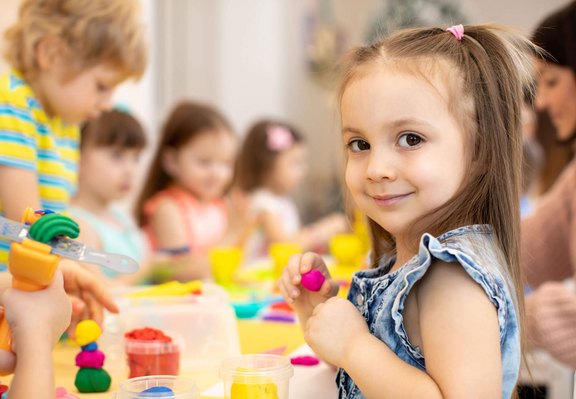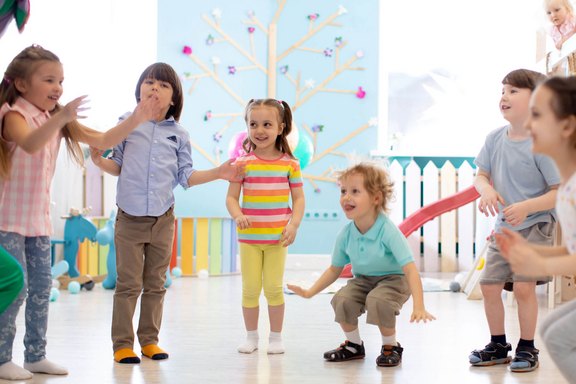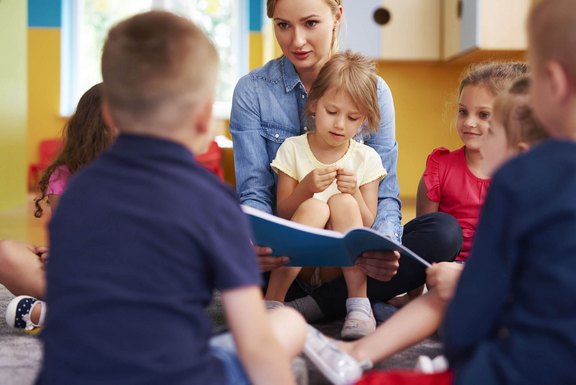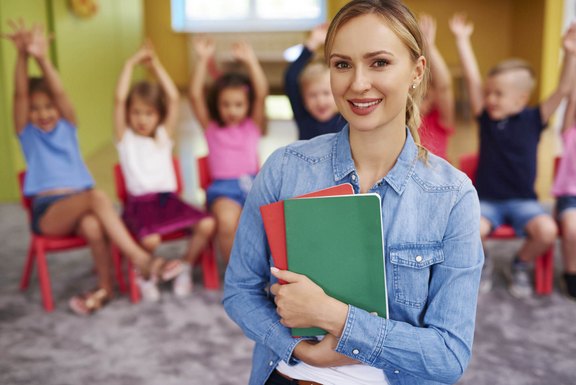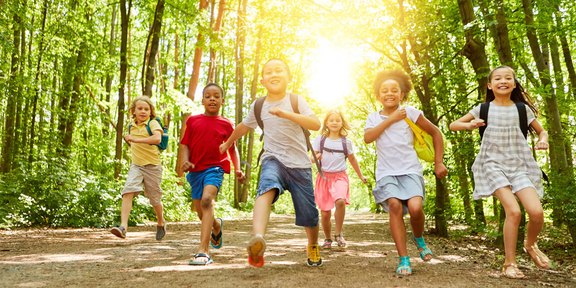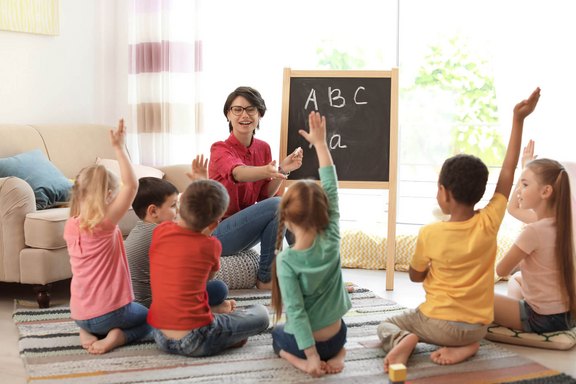Our pre-school work is not restricted to the last year before school starts. We see the entire time spent at kindergarten as preparation for school, with children developing the cognitive abilities and social skills they will need for school and for the rest of their lives. We want the children to look forward to starting school and to go out into the world feeling self-confident, curious, socially competent, able to deal with conflict and fully aware of their own needs and those of others.
At our kindergarten, the last six months before school are devoted to a more intense phase of pre-school work. During this time, the children see themselves explicitly as a pre-school group, or individually as pre-school children, and get used to the idea of going to school and leaving kindergarten. They are provided with plenty of support during this process by our team.
During the last six months of kindergarten, there is a weekly pre-school morning circle, which once again picks up on what we see as the main skills and abilities. Participation in these pre-school morning circles is voluntary for the children, although the majority join in enthusiastically. The pre-school morning circle offers a chance to bring up and discuss what the children are looking forward to and any thoughts, worries and fears they may have about starting school.
What social skills do the children acquire?
For us, children have social-competence when they
- can recognise and express their own needs and those of others
- can solve conflicts by discussing them verbally
- can express their own opinion in the group
- can express their feelings
- show compassion and empathy for others
- express and accept criticism in an appropriate way
- treat other people, nature and material things with respect
Games and exercises are offered to help children practice these skills and they are required to work as a team and look for solutions together. Some examples include obstacle courses with a partner, bridge building as a team, successfully completing courses together, solving riddles as a team. We also help the children to solve conflicts between themselves. During the morning circle, at lunch and whenever a situation comes up, conflicts are discussed and reflected upon.
What Self-competences do the children acquire?
For us, children have self-competence when they
- can express and implement their own ideas
- can associate their feelings with their emotional and physical needs and then deal with them
- can stand up for their own opinions - despite opposition
- can appreciate and communicate their own limits
- can get dressed and changed responsibly and without any help, brush their teeth independently and go to the toilet alone
- have the courage to ask questions
- have self-confidence in their own knowledge and abilities
In order to see themselves as competent, children must experience their own ability to act in the world and be encouraged to do so. We enhance the children’s sense of self-proficiency and self-worth at the kindergarten by giving them responsibility and getting them involved in decision-making processes.
